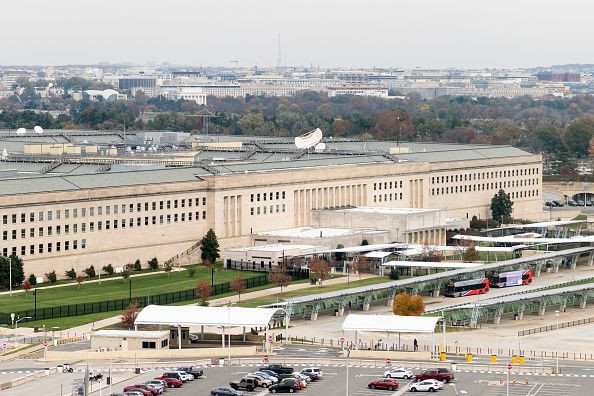Pentagon Chooses Cold War Approach Against Russia And China

The United States is looking into the use of long-range smart weapons to help defend against possible Russian and Chinese attacks.
The Defense Advanced Research Projects Agency has started studying the use of long-range smart weapons system to help the United States defend against enemy attacks. The concept behind reviving the "Cold War" Assault Breaker strategy is to help prevent Pentagon from being helpless should countries like China and Russia attack U.S. bases.
The Assault Breaker II will be a defense smart weapons system that can find and destroy tanks, ships, and other enemy systems.
Assault Breaker II will function as a quick reaction system that could be launched only hours after an enemy attack. A Aviation Week & Space Technology report noted that the deployment of the weapons system would afford the United States some time to send reinforcements to the attacked locations. Assault Breaker II should also be able to damage enemy forces significantly especially those at the front lines.
Despite the Assault Breaker II functioning mostly as a deterrent to discourage enemies from launching surprise attacks, its effects on the enemy forces are massive. Should countries like Russia and China attack the United States, the U.S. Air Force can launch a squadron of 12 B-52H heavy bombers immediately. Each bomber can release up to 20 Assault Breaker standoff missiles. Each of the 20 Assault Breaker standoff missiles, on the other hand, can release up to 40 smart submunitions.
The smart submunitions come equipped with infrared sensors that can hunt enemy forces like tanks. With just twelve bombers, the United States can cripple invasive forces. Assault Breaker II can both destroy and hold enemy forces hostage for a U.S. retaliation.
The program draws inspiration from the Cold War era program designed to prevent Soviet armored spearheads from invading Western Europe. Notably, this is not the only defense system the United States is investing on. It has also awarded Lockheed Martin a deal worth almost a billion dollars for a missile system for Saudi Arabia.
Despite the scrutiny, President Donald Trump has emphasized the role of defense deals. THAAD, or Terminal High Altitude Area Defense, the crown jewel of the United States in terms of missile defense systems, will be installed in the Kingdom of Saudi Arabia. The deal is just the first part of a $15 billion deal. It was in November when Saudi Arabia accepted and signed the agreement. The Defense Department announced the deal awarded to Lockheed Martin on March 4.
© Copyright IBTimes 2024. All rights reserved.





















